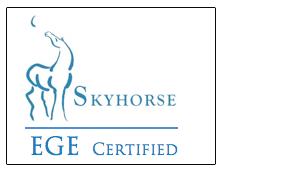We all live with this other person within us – the one who tells us what to do, what not to do and constantly questions our capabilities. Some call this voice “the inner voice,” “the inner critic,” or the superego. If you have not yet recognized this part of your personality, you will surely have experienced its effects.
“Am I good enough?” “Am I worthy?” “I can do better.” “I will never succeed.” “I don’t deserve this.” “Should I be better ?” The list of questions we ask for approval is endless and very personal. We basically hear the voices of our parents through all our lives telling us what is right and what is wrong. All the limiting beliefs we grew up with follow us like a shadow. We no longer need our parents, but they continue living inside us as long as we live.
 Some of the effects the inner voice has on us are positive. It reminds us of ethical rules that are essential for living in society. It has to do with appropriate behavior like leaving the house properly dressed, being polite, showing respect to others, etc. Nevertheless, for the most part there are negative effects, too, and limiting regulations. The inner voice is mainly punitive, keeping us in line and forcing us to constantly ask for approval. It tells us what is right and wrong, what feelings are appropriate, what principles we must follow and everything about how we are supposed to look, believe and act. The inner voice pretends to be our friend, but it is not. It drains our energy and seeks to controls us.
Some of the effects the inner voice has on us are positive. It reminds us of ethical rules that are essential for living in society. It has to do with appropriate behavior like leaving the house properly dressed, being polite, showing respect to others, etc. Nevertheless, for the most part there are negative effects, too, and limiting regulations. The inner voice is mainly punitive, keeping us in line and forcing us to constantly ask for approval. It tells us what is right and wrong, what feelings are appropriate, what principles we must follow and everything about how we are supposed to look, believe and act. The inner voice pretends to be our friend, but it is not. It drains our energy and seeks to controls us.
A. H. Almaas, Author and Spiritual Teacher says:
“Superego is the greatest distracter from presence. It wants to direct the show.”
Your superego attacks you, saying you’re too short, your nose is crooked, you’re dumb, you say things wrong, you never know which foot to put first – that kind of thing. That is the way your superego picks on you: It finds those little incompletenesses and attacks you for them. But when you understand that incompleteness has nothing to do with these things, you will have a deeper handle on your superego. Completeness happens by confronting and completely tolerating the incompleteness. So your superego, by attacking you for feeling incomplete, is really preventing you from getting closer and relaxing into your own true nature, which is complete.”
A.H. Almaas wrote a series of books called Diamond Heart which are transcripts of talks and workgroups he gave in Colorado and California. His quote summarizes beautifully what the superego is about and that the only way out of this dilemma is embracing the true nature of the person we are. We become complete only by accepting our incompleteness.
I have met many women in my coaching practice who were struggling with this issue. The more she strives, the stronger is her inner critic. They often go through hell by constantly struggling with themselves to do the “right thing.” If you are one of them and are feeling the pressure of the punitive and annoying voice of your inner critic or superego, take A. H. Almaas’s words to heart and dig deeper into this topic. It will be a journey that leads you to yourself – your true nature. If you think that your superego is your friend and that you don’t feel any pressure from it, I still invite you on this journey. I am sure that it is not you speaking but your superego misleading you.
Let me end with a quote by Joseph Joubert, “Dance like nobody’s watching.”
For more information on this topic, please contact me. I can provide you with information and I can give you guidance.
Be a woman and act like one.



Liebe Hertha,
hab mir soeben einige Deiner blogs durchgelesen, und bin ganz begeistert! Vor allem dieser Blog hier spricht mir – und sicherlich vielen anderen Frauen – aus der Seele.
Toll gemacht, weiter so!
Irene
Liebe Irene, vielen Dank fuer Dein positives Feedback. Ja, die innere Stimme “The inner critic” ist insbesondere bei uns Frauen immer im Einsatz. Manchmal frage ich mich, weshalb Maenner so scheinbar wenig davon verspüren! Alles Liebe, Hertha
Pingback: The Effects of Speaking Truth |